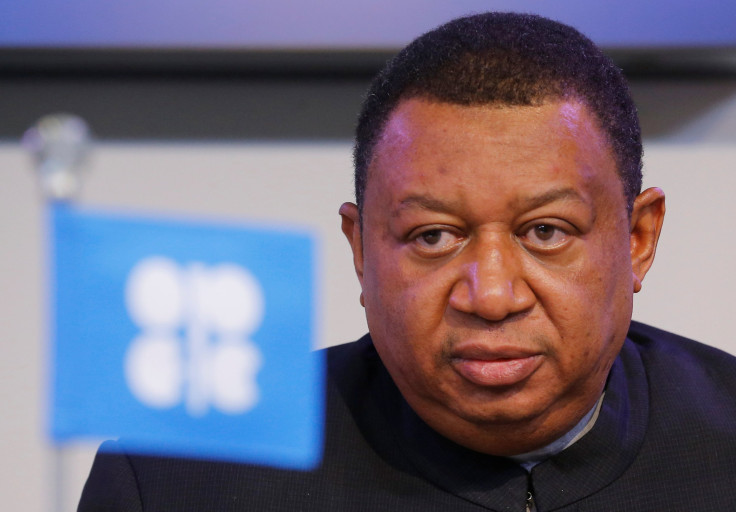Are Oil Prices Going Up? OPEC Sends Brent Crude Soaring Amid Pledge To Work With China, Russia

The secretary general of the Organization of Petroleum Exporting Countries (OPEC) pledged to work with the European Union, Russia and China to stabilize oil prices after the cartel sent crude futures soaring more than 16 percent following Wednesday’s supply cut agreement. The cartel leader, Mohammad Sanusi Barkindo, also pointed to demand from India as a source of heightened demand for OPEC’s product, a factor that could boost prices in the long run.
“There is a clear need to ensure that prices are supported and stabilized,” Barkindo said in a speech at an industry conference in New Delhi, India on Monday, according to an OPEC press release. He added that stabilization “is something that can only be achieved together” and that “such thinking also lies behind the establishment of active, formal and ongoing dialogues with the European Union, China and Russia, as well as a number of other non-OPEC producers.”
Barkindo did not mention the U.S., a major oil producer and importer of petroleum from OPEC member states, in his speech. But he did include a plea for support from another country that could drive up demand for OPEC’s commodity, and therefore its price.
“As one of the world’s largest consumers of crude oil, India is of great importance to OPEC and non-OPEC oil producers alike,” he said, calling his visit the Asian nation following the cartel’s output cap decision “very timely indeed."
Barkindo added that he expected oil demand in India to more than double between 2015 and 2040, to 10 million barrels per day from 4.1 million.
“Such a substantial expansion in India and other fast-growing economies in Asia will require supplies from all producing regions,” he continued. “Thankfully, OPEC member countries will play a crucial role in fueling this dynamic growth. But for this to happen, continued investment in our member countries’ energy industries is required.”
India, the world’s third largest energy consumer after China and the U.S., already gets the vast majority of its oil from OPEC members Saudi Arabia, Iran and Iraq.
The price of the international benchmark known as Brent crude leveled off at just above $55 per barrel Monday—a high not seen in 16 months—after shooting up from around $47 Wednesday, when OPEC agreed to cut its output by 1.2 million barrels per day, or about 4 percent, from its current production of about 33.7 million barrels per day. While a significant increase, the rise came nowhere near reversing a two-and-a-half year downward trend, during which the price of crude more than halved, from over $110 to below $50.
© Copyright IBTimes 2024. All rights reserved.





















